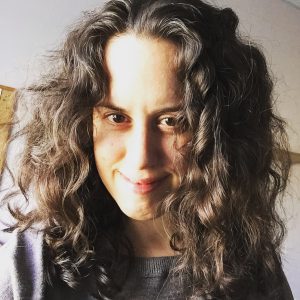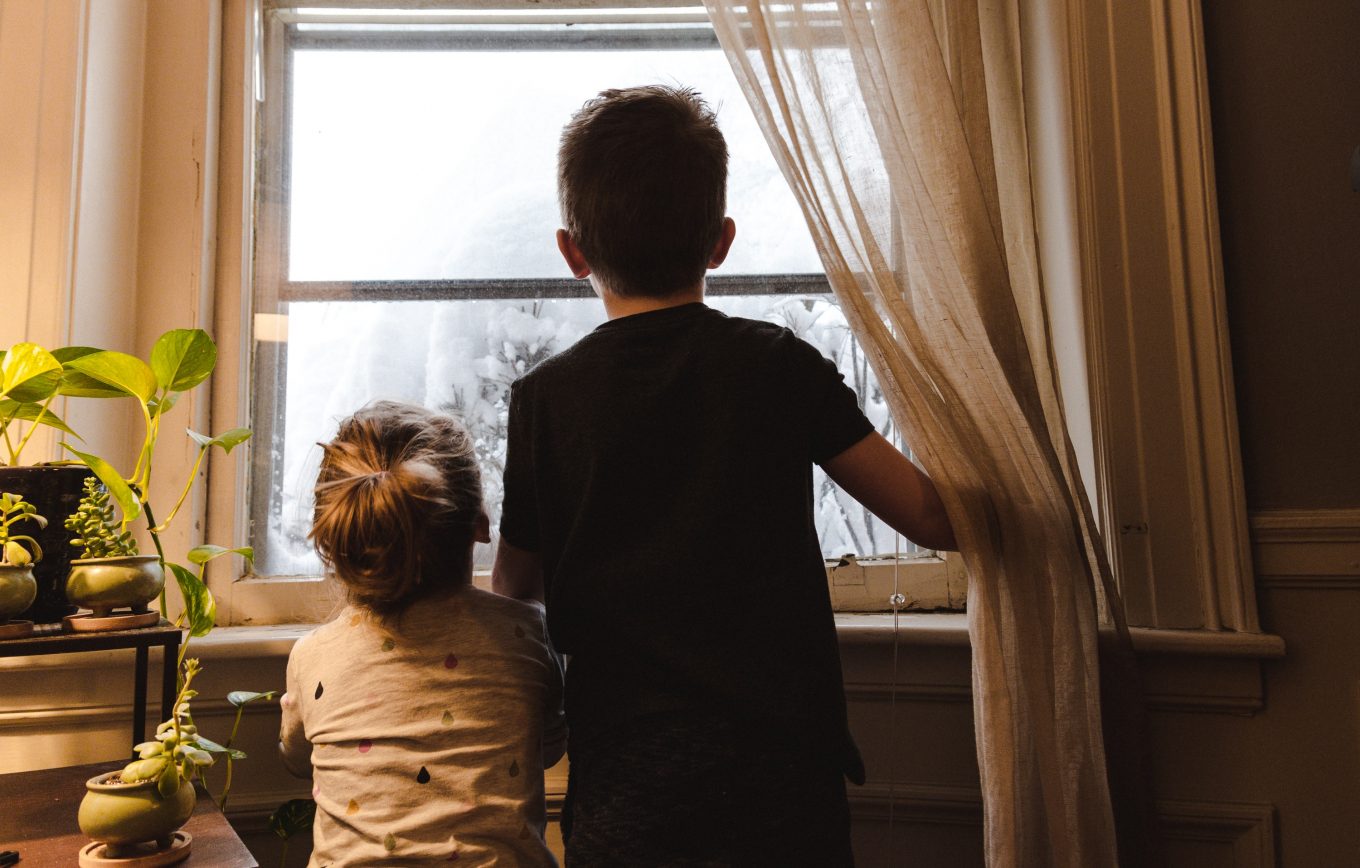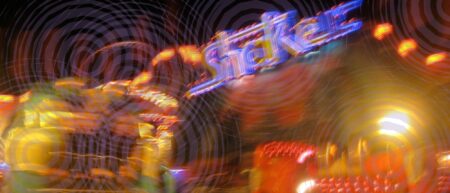I am trying to create an outline for a workshop called “Nothing To Write About: Finding Inspiration in Writer’s Block” when my husband enters the room holding our 13-month-old toddler. His feet wiggle as he calls out to me in a quasi-operatic gargle that I understand to mean he wants to breastfeed. I take him in my arms and he settles to my right side. I try to continue typing, but at this age he is interested in the allure of the keyboard and threatens to jumble or delete my text. After handing him back to my husband, I suggest they find something else to eat.
Alone now, I remain anxious at the thought of when the next interruption will happen. Will our three-year-old wake up from his nap, peek his head in the room with a mischievous smile, and proceed to climb on me and ask what I’m doing? (Actually, yes, I hear his waking-breathing sounds in the next room right now.) Will my life ever be anything but a series of interrupted thoughts? Not that this wasn’t the case before kids. I’m often unable to sustain attention for too long, hence my gravitation toward poetry and essays—containers for bursts of intense, but often short-lived moments of attentiveness. And yet little kids are embodiments of the pull of the physical world, the demands of the flesh. They are need machines. They are brain vacuums. They suck us dry, literally and figuratively.
Now my three-year-old is awake and my husband is rocking him in a chair in the living room to ease his transition back to reality.
But I was talking about the brain: we call it “mom brain” or “baby brain.” I don’t think it will ever go away. I forget everything I started to do. I put things on my iPhone calendar but then don’t check it and somehow miss alerts and forget activities and pickup times. Perhaps it makes sense that the parental brain becomes frazzled when constantly reacting to the shifting and often bizarre needs of children. The human brain continues developing into our twenties. I’m 37 and so I should be long done by now. But my kids’ brains light up minute by minute with discoveries and leaps. No wonder my own brain is fried.
Now the workshop outline is long overdue. All I wanted was to find an example of a poem or essay on a mundane object to use as a writing exercise. I’ve read dozens of these over the years and yet I can’t conjure even one. I’m having writer’s block for my workshop on writer’s block. Eventually I stumble on a book of essays by Charles Simic. I’m amazed at how many essays he’s written (this is a mere “selected” collection!) and assure myself that I will never have the time or brain space to write this much or this well. It’s a shitty feeling that I wouldn’t advocate for any writer, but we’ve all felt it.
This is the moment where I feel compelled to save myself. To exercise self-compassion, though I’ve struggled with what that even means and how to actually do it. Self-compassion is the thing I want to say to the reader that I can’t seem to say to myself. I see you in that mess of existence. I see you are tired. I see you stealing five minutes on your laptop or in your notebook only to be ripped away by your kid, your job, your sick friend. I see the child splayed on your keyboard.
Life interrupts. You may never remember what you meant to say. But that’s okay. You don’t have to. By adding another sentence you are asserting your right and desire to speak. You are tracing the boundaries of the life of the mind, drawing a circle around yourself. Yes, I can hear my husband reciting The Cat in the Hat in the living room. Even in a large apartment, there is no such thing as a room of one’s own. The world insists on being a part of the circle I draw in language: even if I leave my familiar surroundings, go on a writer’s retreat, sit in silence, my body comes with me. The world enters my house, my room, myself. The plants on the terrace. The toys scattered on the floor. I can’t escape it. So why try?
There is no perfect, complete thought, and if there is it existed before birth, in some untouchable mystical sphere. This world is the one we’re granted. The one in which we blink our eyes amazed at what arrives moment to moment. Our imperfect thoughts wind around the constant movement of people and things. The baby plopped on your lap and just as quickly crawling away, distracted by yet another fascinating object. And through all this the tap of your own fingertips, saying this, this and this is who I am and where I am and there is glory in saying so just for sake of it. Just for my own sake. No subject matter. Nothing to write about. Everything to live for, to wonder at, as the baby returns to breast, and I recall that I meant to say something about the need to continue. Through the interruptions to pull on that beautiful thread of truth that reaches, umbilical-like, back before memory began and there was nothing, nothing that needed to be said.
 HILA RATZABI is a writing coach, freelance editor, poet, and essayist, and Editor of Ritualwell.org. Her essays have appeared in the The Wisdom Daily, Drunken Boat, Jewish Daily Forward, MyJewishLearning.com, Alma, Kveller.com, Zeek, MUTHA Magazine, and the Valparaiso Poetry Review. Her poetry has been published in Narrative, Alaska Quarterly Review, Linebreak, and other journals, and in The Bloomsbury Anthology of Contemporary Jewish American Poetry and Ghost Fishing: An Eco-Justice Poetry Anthology. Ratzabi is the former editor-in-chief of Storyscape. She holds an MFA from Sarah Lawrence College and founded the Red Sofa Salon & Poetry Workshop in Philadelphia. She currently lives in Rehovot, Israel with her husband and two sons.
HILA RATZABI is a writing coach, freelance editor, poet, and essayist, and Editor of Ritualwell.org. Her essays have appeared in the The Wisdom Daily, Drunken Boat, Jewish Daily Forward, MyJewishLearning.com, Alma, Kveller.com, Zeek, MUTHA Magazine, and the Valparaiso Poetry Review. Her poetry has been published in Narrative, Alaska Quarterly Review, Linebreak, and other journals, and in The Bloomsbury Anthology of Contemporary Jewish American Poetry and Ghost Fishing: An Eco-Justice Poetry Anthology. Ratzabi is the former editor-in-chief of Storyscape. She holds an MFA from Sarah Lawrence College and founded the Red Sofa Salon & Poetry Workshop in Philadelphia. She currently lives in Rehovot, Israel with her husband and two sons.



